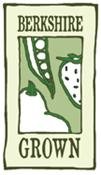| T | |
| Boston GLOBE EDITORIAL Back on the farmFARM AID is coming to Massachusetts in September. The roving concert began in 1985 to help farmers who faced foreclosure. But when Willie Nelson, John Mellencamp, Neil Young and Dave Matthews take to the stage at the The typical Massachusetts farm sells $24,900 of products directly to consumers each year - the highest average in the nation. The state is well ahead of the curve on farmers markets - where people buy direct from the farmer in town squares and parking lots - and memberships in community-supported agriculture. CSA arrangements take the farmers market concept to the extreme. At a market, the farmer still takes all the risk of bringing produce to town in the hopes of people buying it. In a CSA, people support the actual operation, through thick and thin, by purchasing shares before the season. Members get a weekly drop-off of available produce. The year of the first Farm Aid concert, the first CSA in the United States was started in South Egremont by the late Robyn Van En. Today, there are more than 1,200 nationwide. Massachusetts has at least 60 CSAs, and it and Rhode Island have the densest concentration of community-supported farms in the nation, according to the Robyn Van En Center at Wilson College in Pennsylvania. In recent years, altruism toward family farmers has combined with a new concern over the quality, nutrition, and carbon footprint of processed foods and corporate-farmed produce. A growing number of shoppers prefer to purchase greens, tomatoes and blueberries in the open air from the people who grew them. This change in consumer sentiment could prove lucrative for farmers. "We're well positioned to be the leading edge of an agricultural renaissance," Ian Bowles, state secretary for energy and environmental affairs, predicted in a telephone interview. The state encourages the growth of farmers markets, he said. Massachusetts has gone from about 90 farmers markets five years ago to 164. "We have to get people off the streets and back on the land," Willie Nelson said 16 years ago, "and we have to get back to the situation where a young couple can take 100 acres and make a living." Fortunately, the economics of farming may be shifting, as even people who live in cities are getting back to the land. |


No comments:
Post a Comment